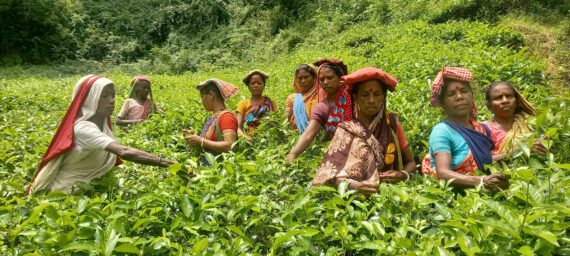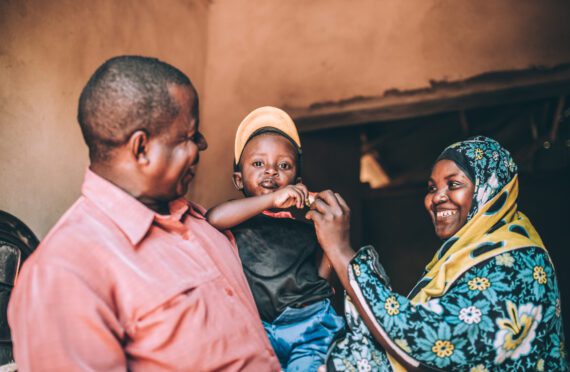Bread for the World emphasizes that gender equity is essential to ending hunger and malnutrition around the world. Back in 2015, Bread’s Hunger Report, When Women Flourish … We Can End Hunger, explored the ways in which gender bias perpetuates hunger. Its companion data visualization, Missing Women, shows the array of information that can help advance gender equity as well as the data that is available for specific countries.
As 2023 began, people on the verge of famine could be found in 37 countries around the world. Providers of humanitarian assistance said that urgent action is critical to prevent “further starvation and death” in Afghanistan, Yemen, Nigeria, Ethiopia, South Sudan, and Somalia. The outbreak of armed conflict in April 2023 in Sudan threatens to increase hunger significantly in both Sudan and its neighbors. Articles in Bread’s Hunger Hotspots series have appeared monthly since April 2022. Each includes information and analysis on hunger emergencies, their causes, and global responses.
It is encouraging that, in the face of increasing levels of severe hunger, high-income countries have significantly increased their investments in emergency humanitarian assistance. The problem, however, is that the needs are growing much more quickly. A U.N. humanitarian needs assessment noted in October 2022 that “Funding shortfalls and rising operational costs have reduced humanitarian assistance across many of these hunger hotspots.”
Given this situation, it is more important than ever for humanitarian assistance programs to seek out strategies to help them become even more effective. Every dollar counts. One potential area for improvement concerns how humanitarian plans recognize the need for gender equity and incorporate it into their responses.
The respected humanitarian organization CARE published a report in 2020 whose title sums up the view that improvements are needed in this area. Left Out and Left Behind: Ignoring Women Will Prevent Us from Solving the Hunger Crisis and its 2022 follow-up, Hunger Policy Solutions Continue to Ignore Gender, present the results of conducting gender equity analyses of dozens of global humanitarian response plans.
One of the most important findings is that many plans to provide humanitarian assistance do not contain the word “woman” at all. Fewer of the planned responses mention gender inequality or factors that contribute to women being more likely than men to face acute hunger and malnutrition. A small number of plans, about 7 percent, offer recommendations to help reduce gender inequities.
But by definition, it is impossible for plans to identify and adopt gender-sensitive approaches if they do not acknowledge that in a hunger crisis, people will have different experiences and needs based on gender. Gender-sensitive approaches are essential to reaching some of those in greatest need.
CARE’s analysis also found that the majority of the response plans that did discuss women mentioned only their vulnerability rather than also identifying strengths—such as the ability to be creative and resourceful in efforts to feed their children. Humanitarian assistance programs that consider only vulnerability “ignore the capacity of women to offer solutions that are best adapted to their needs,” said the report.
Another significant shortcoming revealed by CARE’s gender analysis is the flawed process of data collection and analysis. In most of the humanitarian response plans that were studied, data on hunger and malnutrition was not disaggregated by gender. In still fewer cases, the data were further subdivided by other identity characteristics that affect people’s vulnerability to hunger, such as race or religion.
As with developing gender-sensitive approaches that help identify the most vulnerable people, lack of data on vital points such as who people are, where they live, and whether their situation is worsening makes it far more difficult to devise a plan to reach them in time.
CARE reported slight improvements in the policies developed in 2022 compared with those of 2020 but said that the global humanitarian response continues to fail women.
Excluding women from leadership in how to fund and implement hunger responses “reveals a gap in policymakers’ understanding of gender inequality as a primary driver of food insecurity,” CARE concluded in its 2022 report. Yet women are finding solutions, and reducing gender inequities will help “deconstruct the barriers [they] face to boosting productivity and promoting good nutrition.”
Michele Learner is managing editor, Policy and Research Institute, at Bread for the World.



